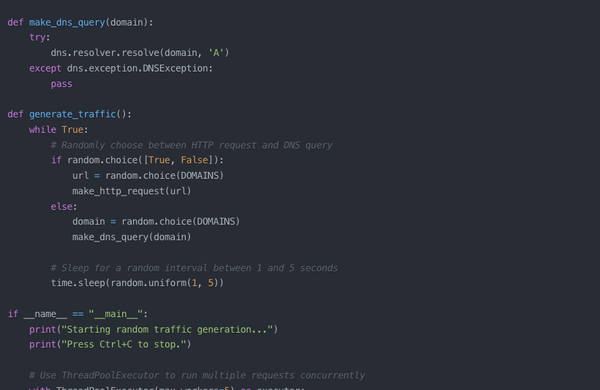13 Free Privacy-Focused Secure Email Services
What are privacy-focused email services?
Privacy-focused email services are email providers that prioritize the protection and privacy of users' personal information and email content. These services use various security measures, such as end-to-end encryption, zero-knowledge architecture, and no data logging, to prevent unauthorized access and protect users' data from third-party entities, including governments, corporations, and hackers.
Privacy-focused email services also aim to minimize user tracking and data collection for targeted advertising purposes, providing a more private and secure email communication experience.

Why Privacy in Email Communication is important?
- Personal Information Protection: Personal and financial information is often contained in emails, including social security numbers, bank account information, and medical history.
Without proper privacy protections, this information could be exposed to unauthorized parties, resulting in identity theft, financial fraud, or other harms. - Security against Hackers: Cyber criminals frequently target email accounts as a means of gaining access to personal information or spreading malware.
Strong privacy protections, such as encryption and no data logging, can help prevent these types of attacks. - Protection against Government Surveillance: Governments may monitor email communication for national security reasons or criminal investigations. However, this monitoring can lead to violations of individual privacy and civil liberties.
Privacy-focused email services can help protect against government surveillance by using strong encryption and other security measures. - Personal Data Protection: Email providers can collect and use user data for targeted advertising and other purposes.
Secure email services aim to minimize this collection and use, providing users with more control over their personal data.
Benefits of Using Privacy Emails Service
- Enhanced privacy and security: Private email services typically offer stronger encryption, better privacy controls, and more secure servers than traditional email services, which helps protect your sensitive information and communications from hackers, data breaches, and unauthorized access.
- Anonymity: Some private email services allow users to remain anonymous by using pseudonyms or aliases, which can help protect their identities and personal information.
- Ad-free experience: Many private email services don't rely on advertising revenue to fund their operations, which means you won't be bombarded with targeted ads or have your personal information sold to advertisers.
- Custom domain: Some private email services allow users to use a custom domain name, which can give them a more professional and personalized email address.
- Increased control: Private email services often offer more control over your email account and data, such as the ability to delete or archive messages, filter out spam or unwanted messages, and manage your contacts and folders more effectively.
- Access from multiple devices: Many private email services offer mobile apps and webmail access, which means you can access your email from anywhere and on any device.
- Support for encryption and two-factor authentication: Private email services often support advanced security features like encryption and two-factor authentication, which can further protect your account and data from unauthorized access.
Overall, privacy-focused email services can help users protect their personal information, safeguard against cyberattacks, and maintain control over their data.
13 Popular free privacy-focused email services
Let’s define the all privacy-focused email services:
1- Eprivo
Eprivo is a secure email and messaging platform that offers end-to-end encryption, self-destructing messages, and other privacy features.
2- Anonaddy
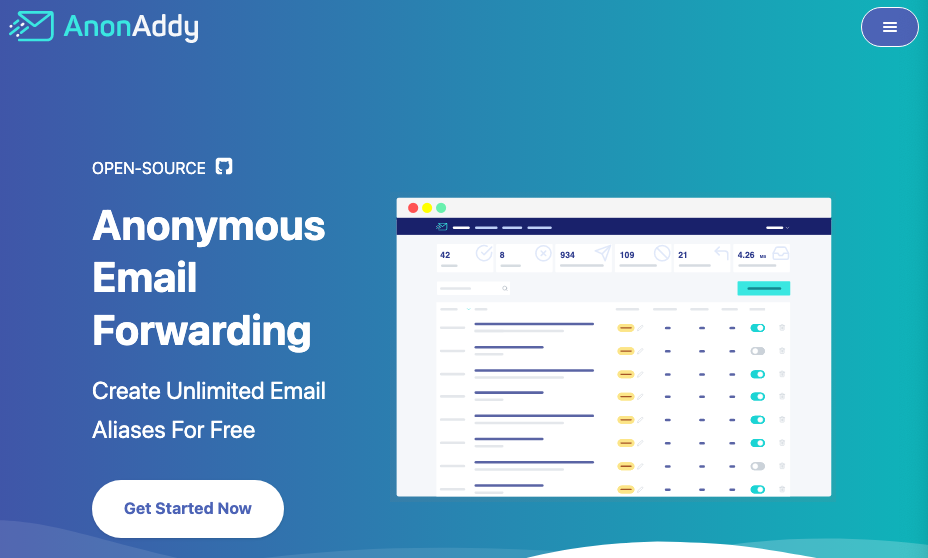
Anonaddy is a privacy-focused email forwarding service that allows users to create anonymous email addresses that forward to their real email address, protecting their identity and privacy.
3- LedgerMail
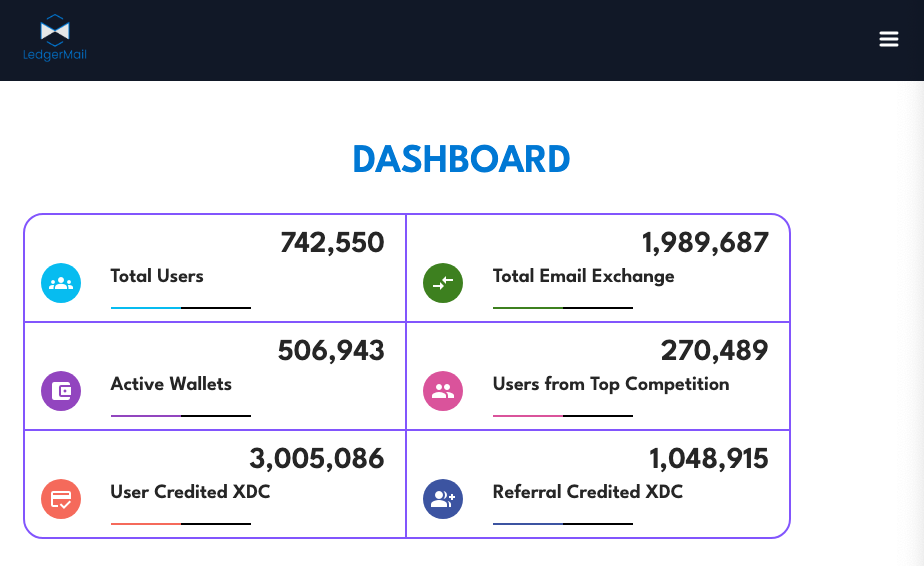
LedgerMail is a blockchain-based email service that uses decentralized storage and encryption to provide secure and private email communication.
4- Proton.me
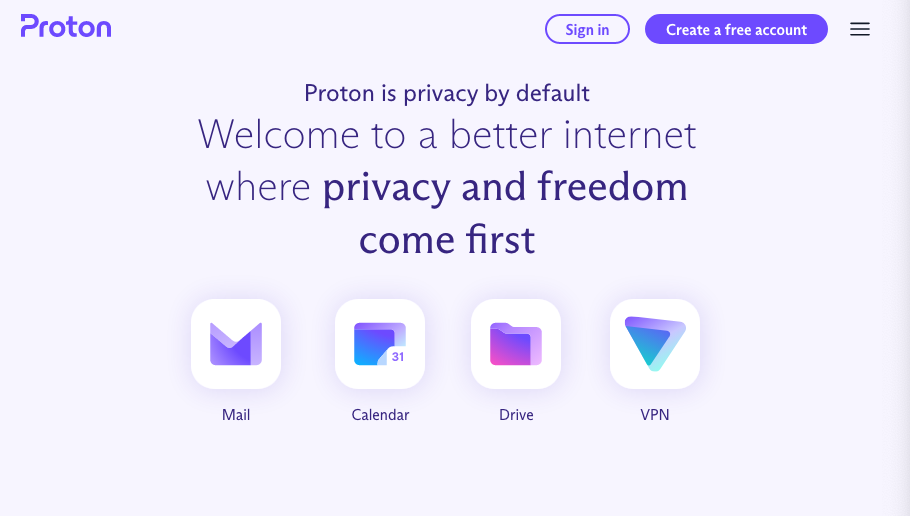
Proton.me is a secure email service offered by ProtonMail, which provides end-to-end encryption and other privacy features to protect user data.
5- DuckDuckGo
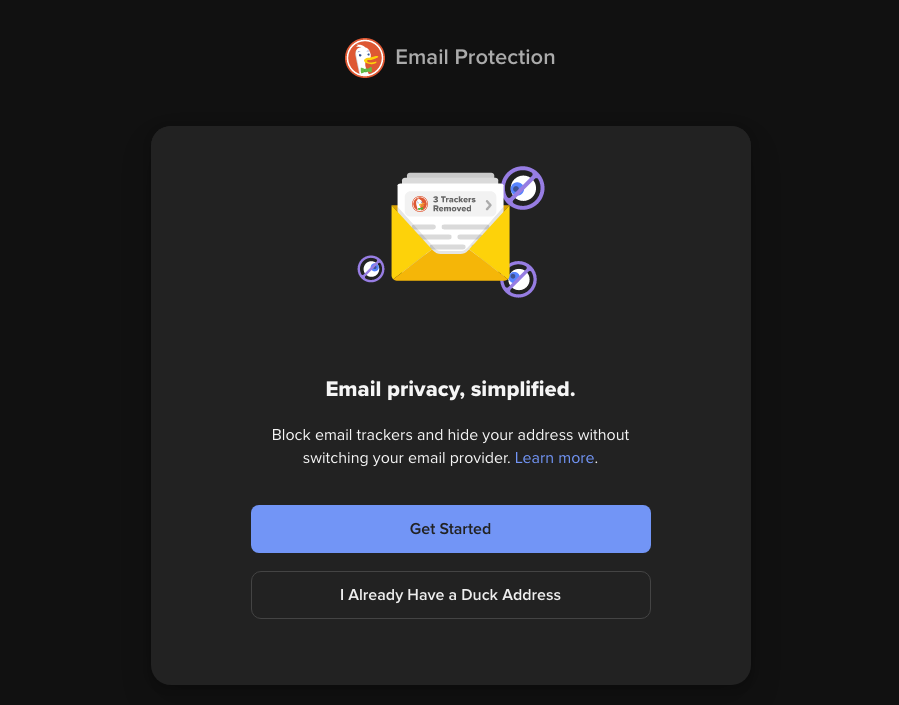
Unlike other search engines, DuckDuckGo focuses primarily on user privacy. No personal information is collected from a user's activity when they use DuckDuckGo. However, to use DuckDuckGo email service you are required to install the Google Chrome Extension.
6- Skiff
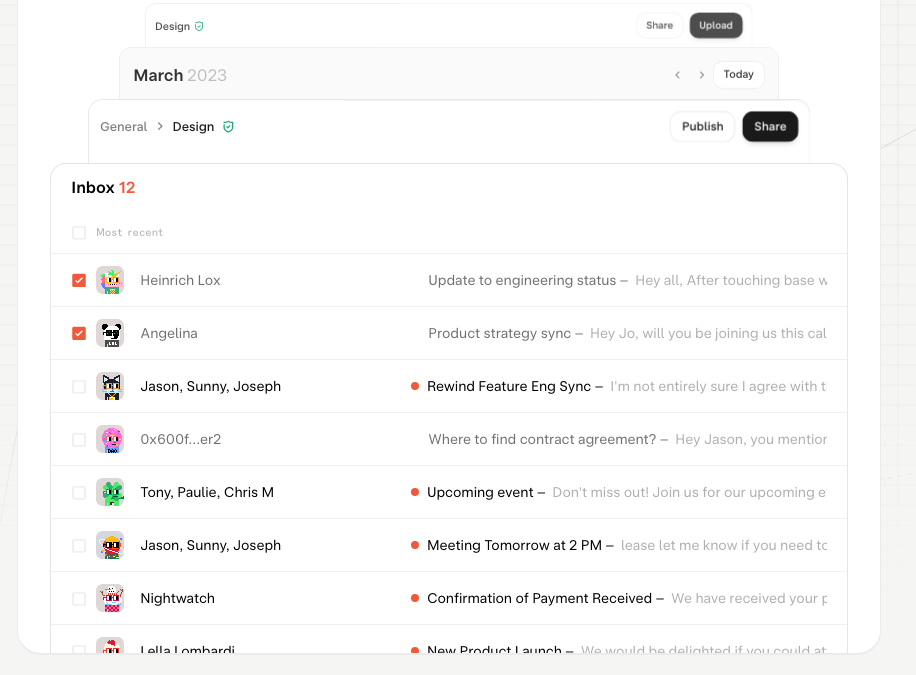
Skiff is a secure collaboration platform that uses end-to-end encryption and zero-knowledge architecture to protect user data and communications.
7- Telios
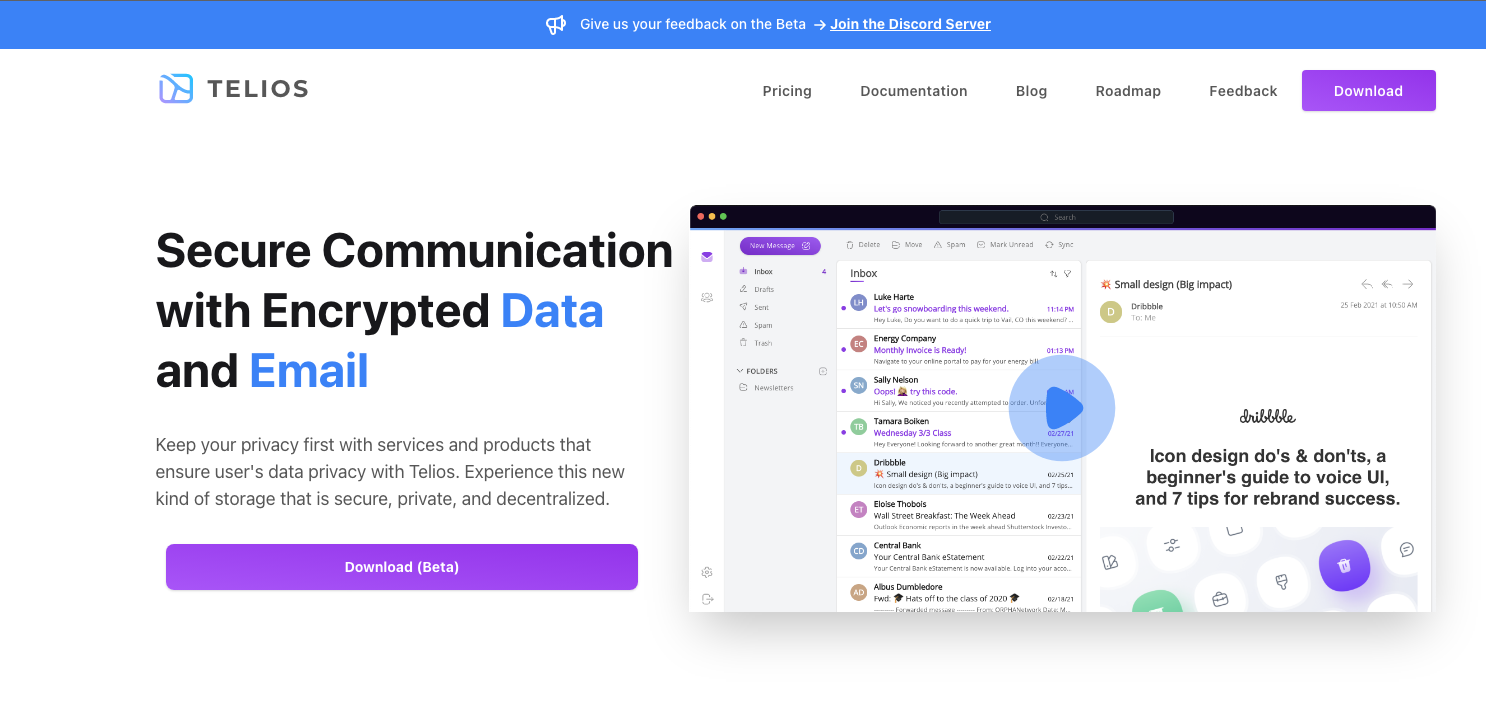
Telios is a secure email and messaging platform that offers end-to-end encryption and other privacy features, such as self-destructing messages and anonymous email forwarding.
8- StartMail
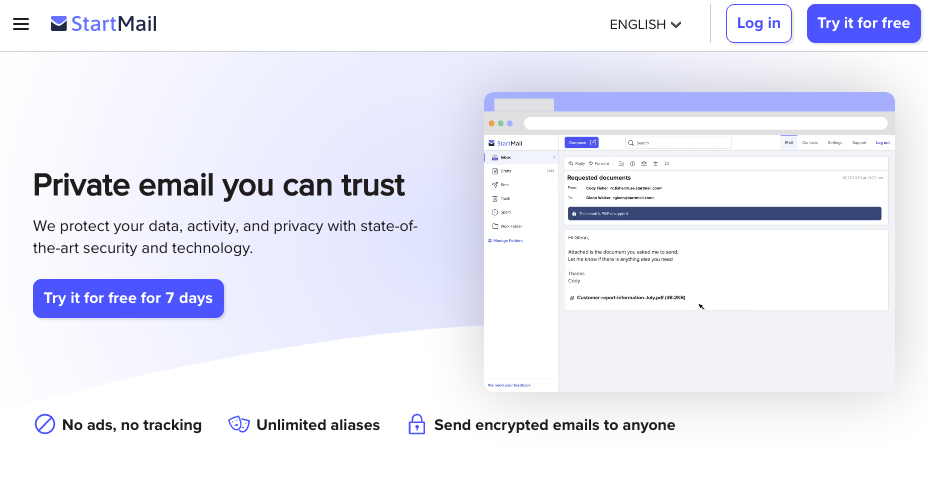
StartMail is a privacy-focused email service that offers end-to-end encryption, no-logging policies, and other privacy features to protect user data.
9- HushMail
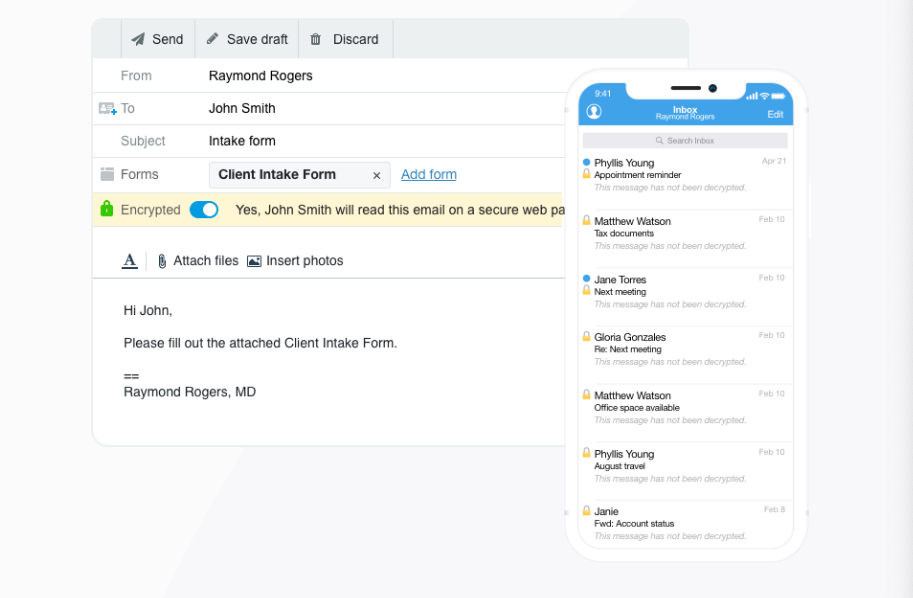
To protect user data and communications, HushMail uses end-to-end encryption and other privacy features.
HushMail allows you to use any mail client on your phone or computer such as Outlook, Apple Mail, and Thunderbird. It also enables you to use your own domain name.
Furthermore, it supports electronic signatures, and private messages.
10- Tutanota
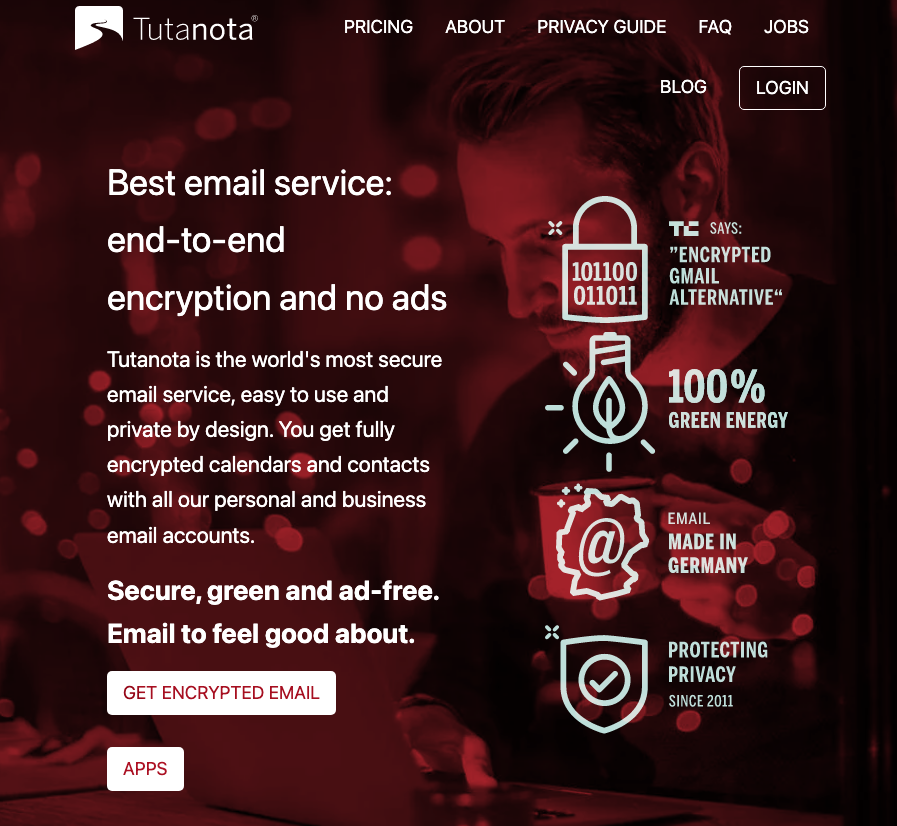
Tutanota is a free email service with end-to-end encryption that offers end-to-end encryption, no-logging policies, and other privacy features to keep users' data and communications safe.
11- TheXYZ
TheXYZ is a blockchain-based email service that uses decentralized storage and encryption to provide secure and private email communication.
12- LavaBit
LavaBit is a secure email service that provides end-to-end encryption and other privacy features to protect user data and communications.
13- ukinBox
ukinBox is a secure email service that offers end-to-end encryption, no-logging policies, and other privacy features to protect user data and communications.
They offer end-to-end encryption, no data logging, and other privacy features to enhance user security and privacy.
Features of Privacy Emails Service
Conclusion
In conclusion, there are several free privacy-focused email services available that provide users with enhanced privacy and security features. These services offer end-to-end encryption, two-factor authentication, custom domains, disposable email addresses, and anonymous email options.
However, free services may have limitations in terms of storage, access to advanced features, and customer support. Users should carefully consider their privacy needs and choose the service that best suits their requirements.
Additionally, users should always practice safe email habits, such as avoiding clicking on suspicious links and regularly changing passwords, to further enhance their security and privacy.







